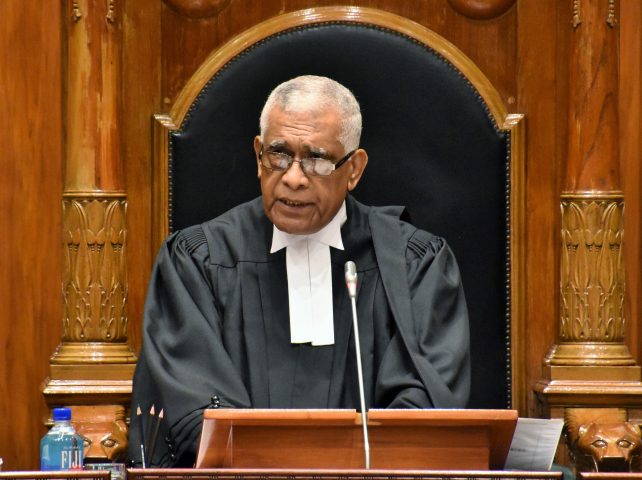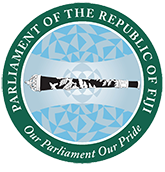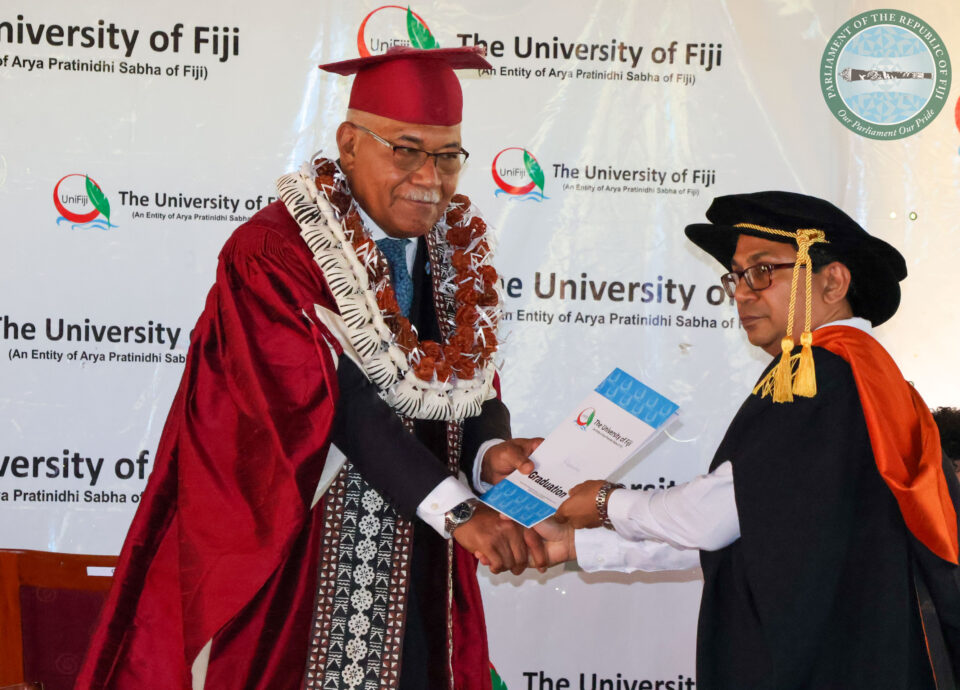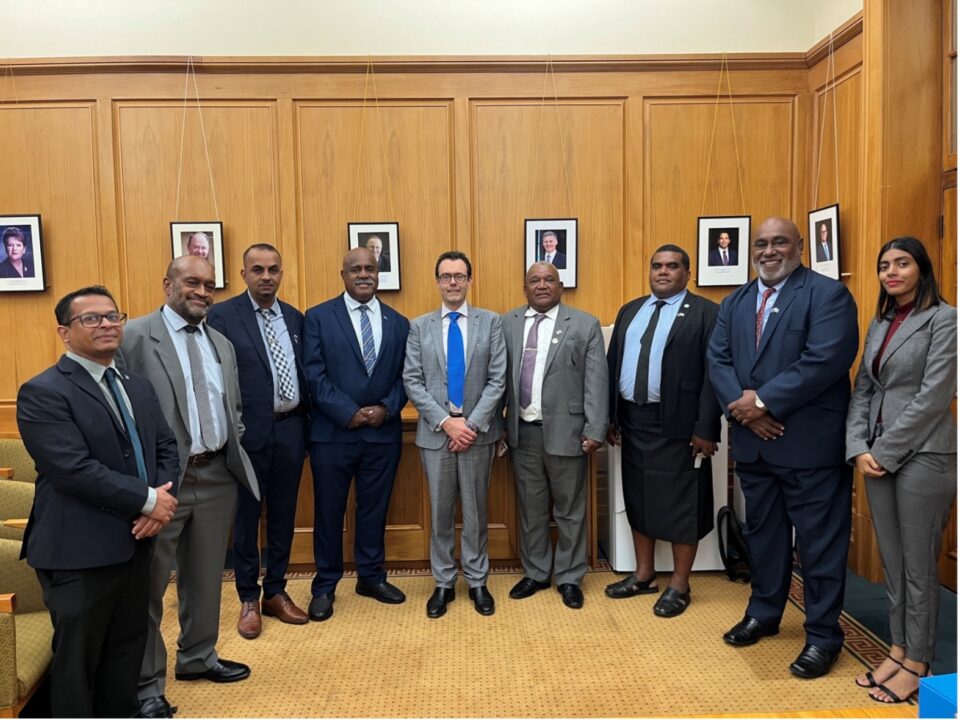International Day of Parliamentarism – Message by the Speaker of Parliament

International Day of Parliamentarism is celebrated annually on June 30th. This special day was established in 2018 through a United Nations General Assembly Resolution and marks the date in 1889 when the Inter-Parliamentary Union (‘IPU’) was founded. The IPU is the international organisation of national Parliaments.
International Day of Parliamentarism is an important event for Parliamentary democracies around the world as it reminds us all that if democracy is to thrive, then Parliaments need to be strong, transparent, accountable and representative.
This is a time to review the progress that Parliaments have made in achieving some key goals of democracy.
As you know, we have just gone past the general election and witnessed a peaceful transition of power, and this is a milestone achievement for our democracy.
On 24 December 2022, during the first Parliament sitting after the general election, history was created when, for the very first time, we all witnessed the Prime Minister of Fiji being elected in Parliament as no one political party won more than 50% of the total number of seats in Parliament. We witnessed an exchange on both sides of the House by Members of Parliament where three political parties led by the elected Prime Minister moved to the Government side and the former governing party in Parliament moved to the Opposition side of the House after the new coalition Government Ministers took oath at the State House and returned to Parliament to complete the remaining items on the Order Paper.
As Speaker for the 2022-2026 term of Parliament, I am working towards strengthening this august institution and ensuring that it is accountable, transparent and effective. Parliament must also be accessible, a force of empowerment for ordinary citizens and an indicator of a functioning democracy.
We have re-introduced the use of vernacular in Parliament, that is, Vosa Vakaviti and Hindi. This is very important to allow more citizens to understand the procedures, processes, and debates in Parliament in their own languages.
We are also in the process of amending the Standing Orders of Parliament to ensure that our representation mandate, legislative process and oversight functions are in line with internationally accepted standards of Parliamentary democracy.
These steps we are taking inspire me to say that, as a nation, we are moving towards becoming a mature democracy where the rule of law is upheld and the peoples’ will is given the outmost respect.
My fellow Fijians, our responsibility as responsible citizens of this nation does not end at the voting booths of the general election, and accepting change.
The International Day of Parliamentarism reminds us all to become active participants in democracy at all times. It is our responsibility as good citizens to be informed about all the laws being enacted by Parliament. Parliament plays its role in making the legislative processes accessible and transparent.
New laws passed by Parliament are implemented by the Executive branch through its various Ministries, departments and statutory authorities. The Prime Minister, Deputy Prime Ministers and Ministers lead these Government agencies in ensuring that legislation and policies are implemented effectively.
On the other hand, Parliament is responsible for checks and balances on the work of Government to ensure that it is implementing the laws and serving the people of Fiji. This is where the Members of Parliament, especially the Opposition Members, have a critical role to play. During Parliamentary debates, they question Ministers and provide alternative suggestions on how to better serve the people of Fiji. Furthermore, Parliament scrutinises the annual reports and Auditor-General’s report of Government ministries, departments and statutory bodies submitted to Parliament by the responsible Ministers. This scrutiny is conducted in the House during debates and through the work of the Standing Committees – who review these reports and summon heads of Government bodies to answer questions.
In Parliament, there are six Standing Committees. These are the Standing Committees on: Economic Affairs; Social Affairs; Natural Resources; Public Accounts; Foreign Affairs and Defence; and Justice, Law and Human Rights. Each of these Standing Committees have five members of Parliament who are from both sides of the House. The Parliament refers Bills, annual reports, Auditor-General’s reports, petitions and international treaties to these Standing Committees to review and report back to Parliament. During the review process, the Standing Committee calls for public submissions, and this is where I urge all Fijians to actively participate. Your views are very important, and they will be heard in Parliament when a Standing Committee reports back to Parliament.
It is my responsibility as Speaker to ensure that these core functions of Parliament progress well and that the people of Fiji are well informed of Parliamentary developments. It is in such respect that I ensure that our Parliament sittings and Standing Committee meetings are accessible to all Fijians through live broadcasts on Channel 7 of the Walesi platform and via the Fiji Parliament Facebook page. As the Speaker of Parliament, I am calling on all Fijians, particularly our young men and women, to keep up with the legislative developments that keep unfolding in your Parliament.
This year’s International Day of Parliamentarianism theme is “My Parliament, My Planet”. The Fijian Parliament is a strong supporter of climate change action at all levels of society. The Parliament of Fiji fully accepts that ‘climate action begins at home, and therefore Parliaments and Parliamentarians must lead by example before preaching to the people’.
At this juncture, I must point out that Parliament has passed legislation and ratified international treaties that support climate change mitigation and adaptation. The most important one is the Paris Agreement – an international treaty on climate change and which the Fijian Parliament ratified on 12 February 2016. The Paris Agreement sets out a global framework to avoid the dangerous impacts of climate change by limiting global warming to well below 2°C and pursuing efforts to limit it to 1.5°C. It also aims to strengthen the ability of countries to deal with the impacts of climate change and support them in their efforts. The Climate Change Act 2021 was passed in Parliament – it is an Act to establish a comprehensive response to climate change, to provide for the regulation and governance of the national response to climate change, to introduce a system for the measurement, reporting and verification of greenhouse gas emissions and for related matters.
Parliament itself is also playing its part in reducing its carbon footprint. Since the previous term, we have progressed on the e-Parliament initiative, which has seen a significant reduction in our paper usage and printing that has translated into an actual drop in costs. One of the more recent efforts which will be implemented today at the sitting of Parliament is the removal of all single-use plastic bottles in the House – these will be replaced by re-usable water bottles and flasks. This will mark the Fijian Parliament’s concrete step in joining the ‘Parliaments for the Planet campaign’ and accelerate green Parliamentary initiatives to reduce its carbon footprint and become greener.
On this International Day of Parliamentarism, I can assure all Fijians that your Parliament will continue to adopt new technologies and means of communication to make Parliament as accessible as possible to the people of Fiji. Parliament will continue looking for ways to innovate and boost public participation in this new term of Parliament. The Parliament will engage in actions that will increase public understanding of its functions, processes and practices. We will also continue to ensure that Parliament ‘adopts greener policies and embrace a culture of sustainability so as to help address the climate crisis and pave the way for stronger climate action’.
-ENDS-







